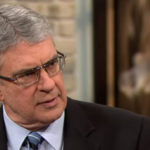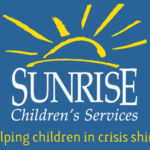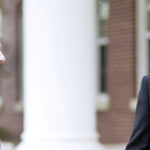ATLANTA (ABP)—Celebrity-driven campaigns like Save Darfur and Invisible Children are popular, but in some cases, they do more harm than good, according to a Baptist scholar who specializes in African politics, conflict and international affairs.
“Advocacy needs to be intelligent,” said Laura Seay, an assistant professor at Morehouse College. “When you present information that isn’t accurately descriptive of the dynamics of the situation, advocacy groups can sometimes do more harm than good.”
|
Activists rallied in Chicago at a rally and prayer vigil for Sudan. The Sudan issue has gained traction in American churches. But scholar Laura Seay warns that oversimplifying conflicts is probably the most common mistake American advocacy groups make.
|
Seay, who attended First Baptist Church in Austin while earning her doctorate at the University of Texas, insists superficial understandings of complex situations can lead to bad advocacy or “badvocacy,” a catch-all phrase to describe advocacy that begins with good intentions but either accomplishes nothing or makes the problem even worse.
Seay, who did field work for her doctorate in the Democratic Republic of Congo, cites that country’s civil war as a prime example. Armed militia in eastern DRC that control minerals used to manufacture cell phones routinely deploy rape as a weapon of war. Advocacy groups like the Enough Project urge Westerners to boycott certain electronic products in order to break the supply chain and thereby discourage atrocities.
The problem, Seay inisted, is no evidence directly links sexual violence and mineral trade.
“The act of buying a cell phone does not cause war in the Congo, and it’s downright misleading to suggest otherwise,” she writes on her blog titled Texas in Africa. “Why? Because it implies that if we could just stop the conflict mineral trade, the situation would markedly improve.”
Bad advocacy leads to bad policy—and to celebrities traipsing around pontificating on issues they don’t understand, Seay said. If advocacy doesn’t help to solve crises and does little or nothing to improve the lives of those who are suffering, Seay contends, it isn’t “better than nothing.”
She cites several reasons why she believes so much Africa-based advocacy in the United States is off-base:
Sign up for our weekly edition and get all our headlines in your inbox on Thursdays
• Oversimplification of the issue. Oversimplifying conflicts is probably the most common mistake American advocacy groups make, Seay contends. Americans tend to seek a single external source of evil for all of the world’s problems. Most instinctively try to narrow complex conflicts down to make them understandable to normal people. It’s a lot easier, for example, to call the war in Congo a “resource war” than to explain it as a series of ongoing local conflicts over land, ethnicity, resources and governance with local, national, regional and international dimensions. “That doesn’t really fit on a T-shirt,” she said.
• Western-conceived solutions. Most peacekeeping missions, peace-building efforts and conflict resolution plans are conceived in New York, Washington and Brussels, often by people who never or rarely visited the countries they purport to help. Seay said that is why “these so-called solutions rarely work.” She advocates looking to local leaders to find answers whenever possible.
“Civil society leaders are well aware of their communities’ problems, and they usually have ideas as to how to solve those problems, or at the very least to mitigate the effects of violent conflict on civilian populations,” she advised. “They speak the languages, know the cultures and can mediate among the key players in local sociopolitical dynamics.”
That doesn’t mean there is no room for Western assistance, Seay said. “It does mean, however, that advocates on this side of the Atlantic should be asking intelligent victims of war what they think would help rather than insisting that the experts know best.”
• Focus on celebrities and trendiness rather than intelligent analysis. Seay says this is Save Darfur’s problem. Everybody opposes genocide, but when people who are trained as actors and musicians start traipsing around war zones without having done any homework independent of the organization supporting their visits, they give a narrative that isn’t exactly representative of the facts.
“So, Darfur in the popular imagination becomes not a civil war over changing land usability and land tenure rights with people doing horrible things on both sides, but rather becomes the nasty Arab government going after innocent black Darfuris,” she says. “The reality, of course, is closer to the former description than the latter, but I don’t expect Mia Farrow to know that.”
• Focus on the advocates rather than those they purport to help. Seay confesses to cultural heresy by disagreeing with talk show sensation Oprah Winfrey about Invisible Children, a grassroots movement that started with a documentary film about children kidnapped and turned into child soldiers in Uganda.
“Most of their advocacy isn’t actually focused on Ugandan children, but rather on how their supporters feel about Ugandan children and the problem of the use of child soldiers,” Seay writes. “Good advocacy isn’t about the advocates; it’s about the people who need others to stand up on their behalf.”
• Insistence that “we have to do something.” The human impulse to protect others generally is good, Seay said, but that doesn’t always mean that the “something” in question should be done. Westerners too often get involved in conflicts they don’t really understand, and bad things happen.
• The white man’s/woman’s burden. “Young people get excited about truly appalling situations and, like generations of missionaries and colonists before them, they decide they’re going to ‘Save Africa,’” Seay said. “This generally leads to discussions of being ‘a voice for the voiceless.’
“Here’s the problem with that: Africans aren’t voiceless. In 11 years of experience on the continent, I’ve never met a citizen of an African state who didn’t have opinions on his or her country and its state of affairs. There’s a big difference between claiming to speak for someone and standing alongside those who want to change their own communities. Africa-focused advocacy could use a lot more of the latter.”














We seek to connect God’s story and God’s people around the world. To learn more about God’s story, click here.
Send comments and feedback to Eric Black, our editor. For comments to be published, please specify “letter to the editor.” Maximum length for publication is 300 words.